THE HUNGER GAMES: The Lighter, Audience-Friendly Side Of Dystopian Fears
Big box office hits are often fascinating to follow - not always because of the film itself but because of the inevitable controversy that comes in the wake of massive success. The most recent example as of this writing is the film version of Suzanne Collins' novel The Hunger Games. It was inevitable this film would be a hit as the book that spawned it, the first part of a trilogy, has a rabid fan base second only to the Twilight fan base in size and fervor. The film's success - #1 for a month at the U.S. box office - also spawned an instant backlash from genre types who consider the film story to be little 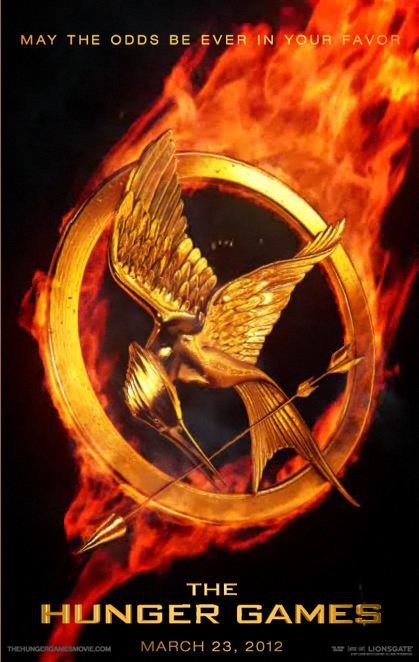 more than a rehash of Battle Royale, The Running Man, Lord Of The Flies, etc.However, such fan-level sniping frequently obscures the most important question - is the film any good on its own merits? With The Hunger Games, the answer is both yes and no. There are some strong narrative hooks that connect and there are also parts that are shockingly sloppy and ill-conceived for such a well-funded enterprise. The end result represents the problems inherent to making a film version of a massively popular novel.The premise for The Hunger Games harkens back to classic dystopian sci-fi themes, proposing a future in which a class-based rebellion resulted into a strictly controlled society dominated by a ruling class. The leaders maintain their control by demoralizing the lower classes in a unique way: each "district" is required to offer up two children from its pre-teen/teen age groups to participate in a lethal
more than a rehash of Battle Royale, The Running Man, Lord Of The Flies, etc.However, such fan-level sniping frequently obscures the most important question - is the film any good on its own merits? With The Hunger Games, the answer is both yes and no. There are some strong narrative hooks that connect and there are also parts that are shockingly sloppy and ill-conceived for such a well-funded enterprise. The end result represents the problems inherent to making a film version of a massively popular novel.The premise for The Hunger Games harkens back to classic dystopian sci-fi themes, proposing a future in which a class-based rebellion resulted into a strictly controlled society dominated by a ruling class. The leaders maintain their control by demoralizing the lower classes in a unique way: each "district" is required to offer up two children from its pre-teen/teen age groups to participate in a lethal 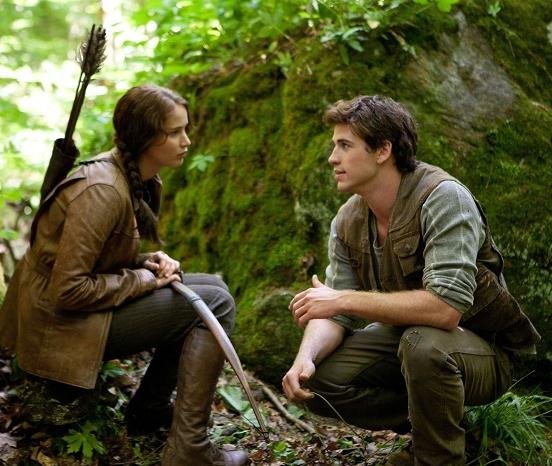 game where they all must fight each other to the death until one victor remains. This bloodsport has become the backbone of all levels of society, transformed into a sort of lethal Olympics that doubles as a hit reality show (complete with a talk show to interview the contestants).The heroine in this scenario is Katniss (Jennifer Lawrence), a teen who cares for her mother and sister with the occasional bit of illegal hunting. When Katniss' sister is chosen for the Games, Katniss offers herself as a replacement. She is shipped off to participate along with Peeta (Josh Hutcherson), who isn't as tough as Katniss but more skilled in social matters.
game where they all must fight each other to the death until one victor remains. This bloodsport has become the backbone of all levels of society, transformed into a sort of lethal Olympics that doubles as a hit reality show (complete with a talk show to interview the contestants).The heroine in this scenario is Katniss (Jennifer Lawrence), a teen who cares for her mother and sister with the occasional bit of illegal hunting. When Katniss' sister is chosen for the Games, Katniss offers herself as a replacement. She is shipped off to participate along with Peeta (Josh Hutcherson), who isn't as tough as Katniss but more skilled in social matters. 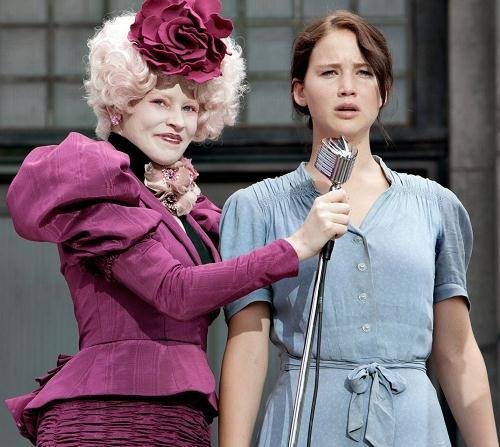 The two are inevitably drawn together as they go through the whirlwind of training, promotion and the brutal, rigorous games - but they're up against a system that dictates there can be only one survivor.The end result is surprising on two levels. The first level of surprise is that The Hunger Games is a popcorn movie built on some very un-popcorn movie ideas: the dystopian premise presents a world in which children are forced to kill other children by the wealthy as a way to psychologically control the lower classes. These concepts are inherently grim and shocking, which brings in the other surprising level of The Hunger Games - for all its dark concepts, it never really connects with the viewer in a hard-hitting, confrontational way. Your
The two are inevitably drawn together as they go through the whirlwind of training, promotion and the brutal, rigorous games - but they're up against a system that dictates there can be only one survivor.The end result is surprising on two levels. The first level of surprise is that The Hunger Games is a popcorn movie built on some very un-popcorn movie ideas: the dystopian premise presents a world in which children are forced to kill other children by the wealthy as a way to psychologically control the lower classes. These concepts are inherently grim and shocking, which brings in the other surprising level of The Hunger Games - for all its dark concepts, it never really connects with the viewer in a hard-hitting, confrontational way. Your 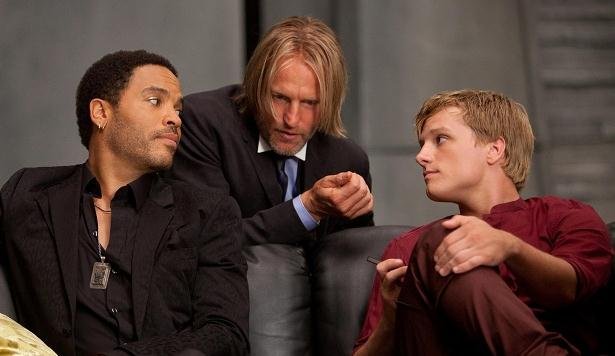 Humble Reviewer hasn't read any of the books but fans claim they are much darker and more violent than what ended up on screen - and what remains in this film is curiously devoid of bite or any feeling of danger.Part of this lack of shock effect in The Hunger Games comes from the familiar nature of the plot. As laid out by the film's script, the proceedings have a very "Dystopian Future 101" feel full of familiar concepts. It doesn't rip off Battle Royale or The Running Man the way
Humble Reviewer hasn't read any of the books but fans claim they are much darker and more violent than what ended up on screen - and what remains in this film is curiously devoid of bite or any feeling of danger.Part of this lack of shock effect in The Hunger Games comes from the familiar nature of the plot. As laid out by the film's script, the proceedings have a very "Dystopian Future 101" feel full of familiar concepts. It doesn't rip off Battle Royale or The Running Man the way 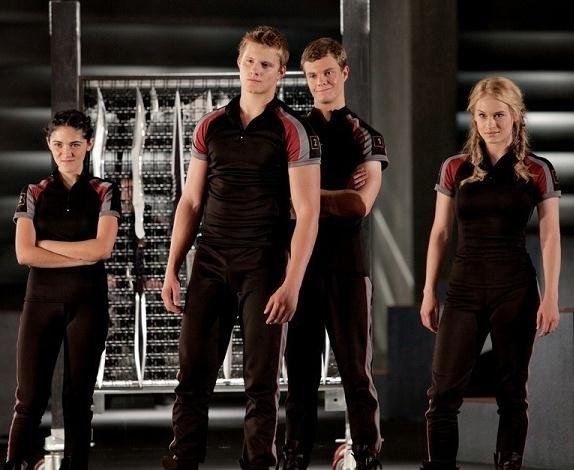 its detractors claim but it's very much cut from the same cloth - and the fact that it's a very light, all-audiences-friendly version of these concepts reduces the film's overall impact.It's also rather predictable: even if you know nothing about the books it's obvious that Katniss will come out on top as soon as the viewer meets here. In fact, the film doesn't even try to interest the audience in any other character besides Peeta : virtually every competitor is portrayed as a one-note cipher. There are some interesting peripheral characters tied to the workings of the game - particularly stylist Cinna (Lenny Kravitz) and trainer/former contestant Haymitch (Woody Harrelson) - but the overstuffed nature of the narrative and the primary focus o
its detractors claim but it's very much cut from the same cloth - and the fact that it's a very light, all-audiences-friendly version of these concepts reduces the film's overall impact.It's also rather predictable: even if you know nothing about the books it's obvious that Katniss will come out on top as soon as the viewer meets here. In fact, the film doesn't even try to interest the audience in any other character besides Peeta : virtually every competitor is portrayed as a one-note cipher. There are some interesting peripheral characters tied to the workings of the game - particularly stylist Cinna (Lenny Kravitz) and trainer/former contestant Haymitch (Woody Harrelson) - but the overstuffed nature of the narrative and the primary focus o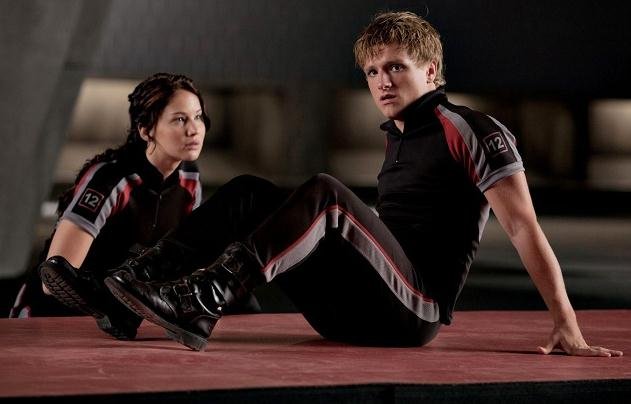 n the heroine ensures they get even less time to connect with the audience.However, the element of The Hunger Games that is most responsible for blunting its impact is the lackluster direction of Gary Ross. Ross is better known for middlebrow films like Pleasantville and Seabiscuit and he's particularly ill-suited to this project for many reasons. The first is that he's terrible at directing action: virtually every fight or battle in the film is handled in a half-hearted manner reliant on shaky camera moves and fast cutting.
n the heroine ensures they get even less time to connect with the audience.However, the element of The Hunger Games that is most responsible for blunting its impact is the lackluster direction of Gary Ross. Ross is better known for middlebrow films like Pleasantville and Seabiscuit and he's particularly ill-suited to this project for many reasons. The first is that he's terrible at directing action: virtually every fight or battle in the film is handled in a half-hearted manner reliant on shaky camera moves and fast cutting. 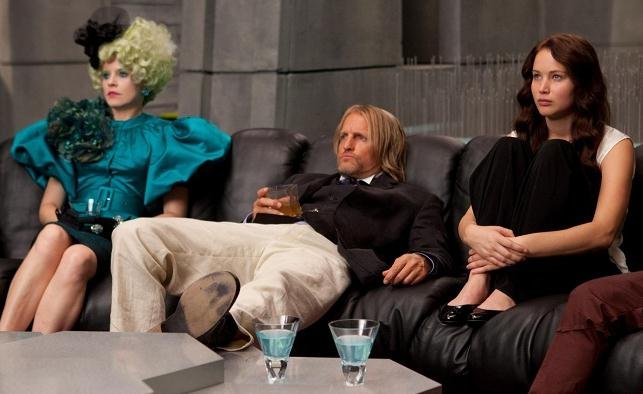 There's nothing visceral or kinetic to the fights and this drains their effect on the audience. It often feels like Ross is trying to work around the action, which is unfortunate because the second half of the film centers on that action.Ross also shows a lack of visual imagination when handling the kind of spectacle required in a futuristic film. The scenes in the more "privileged" districts lack the scope, scale and visual style to sell the viewer on their prestige, meaning these sequences often have a cheap, t.v.
There's nothing visceral or kinetic to the fights and this drains their effect on the audience. It often feels like Ross is trying to work around the action, which is unfortunate because the second half of the film centers on that action.Ross also shows a lack of visual imagination when handling the kind of spectacle required in a futuristic film. The scenes in the more "privileged" districts lack the scope, scale and visual style to sell the viewer on their prestige, meaning these sequences often have a cheap, t.v. 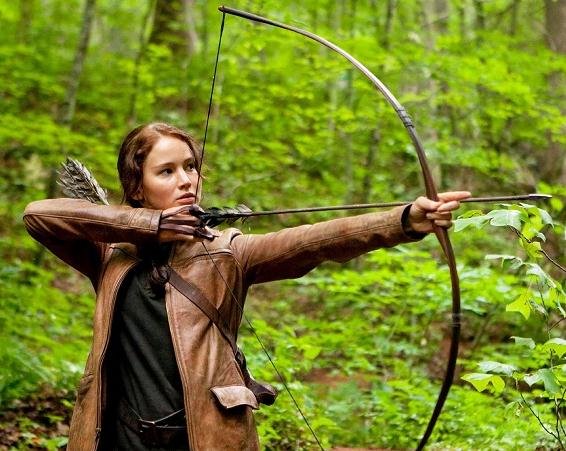 movie look to them. On a similar note, Ross has trouble directing scenes involving large scale visual effects: once the game requires there to be computer-controlled forest fires or remote-controlled killer animals, these scenes are drenched in the kind of cheap, poorly-rendered CGI you'd expect from a SyFy Original T.V. Movie.However, despite these major issues, The Hunger Games isn't unwatchable. In fact, it's interesting enough to carry you through at least one viewing. Collins' story has s
movie look to them. On a similar note, Ross has trouble directing scenes involving large scale visual effects: once the game requires there to be computer-controlled forest fires or remote-controlled killer animals, these scenes are drenched in the kind of cheap, poorly-rendered CGI you'd expect from a SyFy Original T.V. Movie.However, despite these major issues, The Hunger Games isn't unwatchable. In fact, it's interesting enough to carry you through at least one viewing. Collins' story has s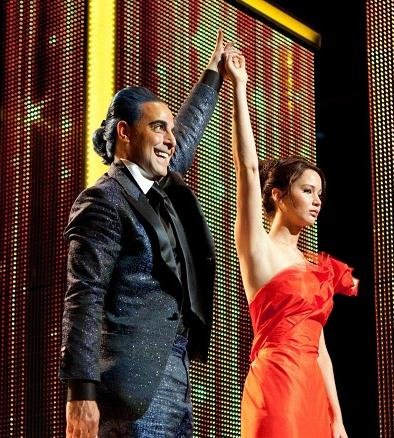 ome interesting details that kick in once the film gets to the district where the competition occurs, like the talk show that "introduces" the districts to the contestants and the interactions between the contestants and the various trainers, stylists, etc. Though poorly directed, the second half features enough action to keep the audience, particularly the scenes involving a few mildly exotic devices (one highlight involves a wasp's nest that harbors a nasty surprise).The best asset of The Hunger Games is its cast: Lawrence does strong, understated work as the heroine, playing the film's outlandish conceits for real and exuding a sincerity that keep the viewer involved. Hutcherson is decent as the love interest but Liam Hemsworth is much more in with his few scenes as the guy that Katniss leaves back home. The adult cast is uniformly entertaining: Harrelson steals a few scenes as the raffish drunk whose decency is reawakened by Katniss and Kravitz
ome interesting details that kick in once the film gets to the district where the competition occurs, like the talk show that "introduces" the districts to the contestants and the interactions between the contestants and the various trainers, stylists, etc. Though poorly directed, the second half features enough action to keep the audience, particularly the scenes involving a few mildly exotic devices (one highlight involves a wasp's nest that harbors a nasty surprise).The best asset of The Hunger Games is its cast: Lawrence does strong, understated work as the heroine, playing the film's outlandish conceits for real and exuding a sincerity that keep the viewer involved. Hutcherson is decent as the love interest but Liam Hemsworth is much more in with his few scenes as the guy that Katniss leaves back home. The adult cast is uniformly entertaining: Harrelson steals a few scenes as the raffish drunk whose decency is reawakened by Katniss and Kravitz 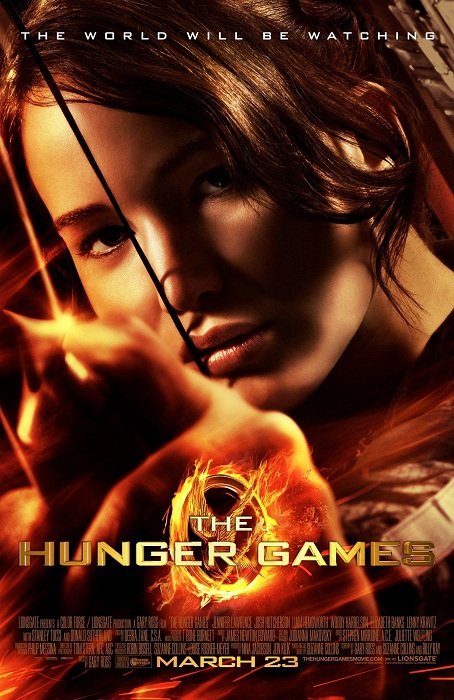 impresses with a subtle, nicely underplayed turn as the first adult who sides with the heroine. There are also fun supporting bits from Elizabeth Banks as a ditzy announcer and especially Stanley Tucci, who kills as the obnoxious and smarmy host of the Games' talk show.Ultimately, The Hunger Games shapes up as a unique anomoly in the world of mass-appeal popcorn fare: it falls short of its potential due its habit of playing dangerous ideas in a safe manner to appeal to a mass audience but what is there is eccentric enough to be intriguing if not absorbing and shocking the way it should be. Your Humble Reviewer hopes that they take a few more chances with the inevitable sequels - and that the filmmakers become less skittish about the action and dark themes inherent to their franchise.
impresses with a subtle, nicely underplayed turn as the first adult who sides with the heroine. There are also fun supporting bits from Elizabeth Banks as a ditzy announcer and especially Stanley Tucci, who kills as the obnoxious and smarmy host of the Games' talk show.Ultimately, The Hunger Games shapes up as a unique anomoly in the world of mass-appeal popcorn fare: it falls short of its potential due its habit of playing dangerous ideas in a safe manner to appeal to a mass audience but what is there is eccentric enough to be intriguing if not absorbing and shocking the way it should be. Your Humble Reviewer hopes that they take a few more chances with the inevitable sequels - and that the filmmakers become less skittish about the action and dark themes inherent to their franchise.


